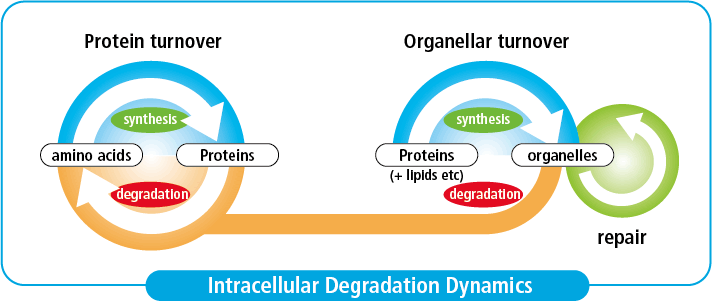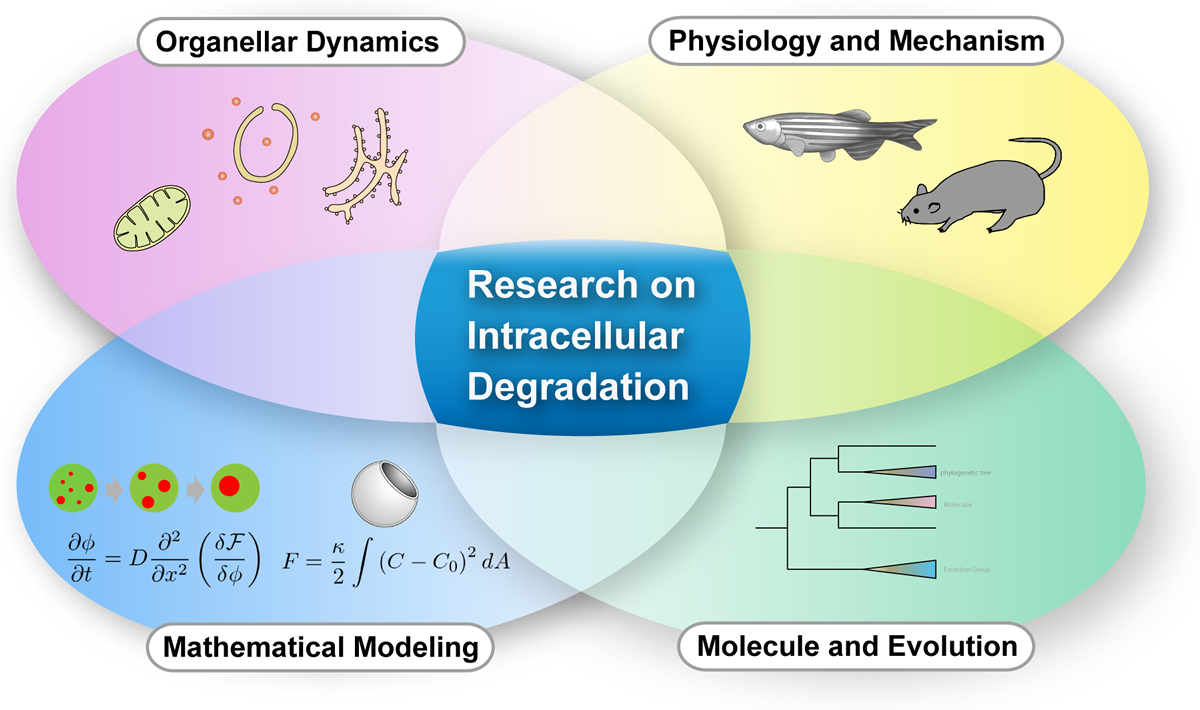Project Overview
Intracellular constituents such as proteins and organelles are turned over by unremitting synthesis and degradation. This dynamic turnover is critical for homeostasis, development, and environmental adaptation. Autophagy, one of the major degradation systems, is conserved in most eukaryotes and can degrade not only proteins but also larger materials including organelles. Although autophagy is basically a non-selective process, it can act on specific substrates. However, our comprehensive and quantitative understanding of autophagic degradation remains relatively limited. Since autophagy is considered to be connected to aging and human diseases, a precise understanding of autophagy is now even more imperative.
In this project, by focusing on autophagic degradation of proteins and organelles, we will develop innovative technologies for quantitative measurement of autophagic activity and organellar analysis and isolation, reveal the biological significance and mechanisms of intracellular degradation in vertebrates, incorporate mathematical and physical modeling approaches, and investigate molecular evolution of autophagy-related molecules. The findings and technologies developed in this project will contribute not only to various basic science fields such as cell biology and cell physiology but also to our understanding of pathogenesis and therapeutic strategy of intracellular turnover-related diseases.


Research Groups
Organellar Dynamics Research Group
Physiology and Mechanism Research Group
Mathematical Modeling Group
Molecule and Evolution Group
Project Headquarter
Department of Biochemistry and Molecular Biology
Graduate School and Faculty of Medicine
The University of Tokyo
7-3-1, Hongo, Bunkyo-ku
Tokyo 113-0033, Japan
TEL: +81-3-5841-2862, FAX: +81-3-3815-1490



